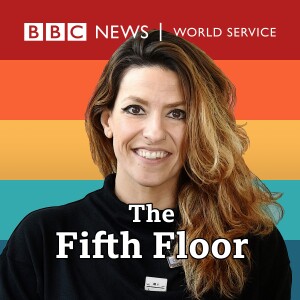
The German state has formally recognised that its colonial troops committed genocide in what's now Namibia at the start of the twentieth century. It is also paying $1.3 billion towards development projects in affected communities, but as BBC Africa's Pumza Fihlani reports, the offer has not been welcomed by descendants of the Nama and Herero survivors.
South Korea's 'flower prescription' tattooist
A tattoo artist in South Korea is using her art to help clients who have struggled with their mental health. She works with them to design flower tattoos which cover self-harm and traumatic scars. BBC Korean's Julie Yoon has been to meet her.
A Fifth Floor guide to Cornwall
Leaders from the G7 nations are meeting in the Cornish holiday resort of Carbis Bay to discuss the world's biggest issues. It's a packed agenda, but should they have a few hours off, we asked our colleagues on the Fifth Floor for their tips on where to go, what to do, and what to pack. Suggestions from Issariya Praithongyaem of BBC Thai, BBC Brasil's Eric Camara, Janina Litvinova of BBC Russian and Dahami Ranaweera of BBC Sinhala.
Returning cheetahs to India
Cheetahs are set to make a comeback in India, where they became extinct more than half a century ago. They have a rich history in the country, and were bred for sport under the Mughals. BBC correspondent Soutik Biswas tells us about the efforts to get the world’s fastest cat back into the wild.
Israeli, Jewish and Moroccan
BBC Arabic’s Fethi Benaissa recently made a short film about Israeli Moroccan singer Neta Elkayam. Her music gives a clue to her background, born in Israel to Jewish Moroccan parents, and with a grandmother from Morocco’s indigenous Amazigh community. It’s a rich cultural mix – one that appealed to Fethi.
Image: Graves next to the Swakopmund Concentration Camp Memorial in Namibia
Credit: Christian Ender/Getty Images
view more
More Episodes
India's secret soldiers
 2020-10-09
2020-10-09
 2020-10-09
2020-10-09
The battle over Nagorno-Karabakh
 2020-10-02
2020-10-02
 2020-10-02
2020-10-02
Music and Memory
 2020-09-25
2020-09-25
 2020-09-25
2020-09-25
Protests against Colombia's police
 2020-09-18
2020-09-18
 2020-09-18
2020-09-18
The Indian diamonds losing their shine
 2020-09-11
2020-09-11
 2020-09-11
2020-09-11
The refugee children of Cox's Bazar
 2020-09-04
2020-09-04
 2020-09-04
2020-09-04
Getting to know Navalny
 2020-08-28
2020-08-28
 2020-08-28
2020-08-28
Breaking taboos in Iran
 2020-08-21
2020-08-21
 2020-08-21
2020-08-21
Beirut: after the explosion
 2020-08-14
2020-08-14
 2020-08-14
2020-08-14
The teenager who took on the Taliban
 2020-08-07
2020-08-07
 2020-08-07
2020-08-07
The Kenyan clan branded 'evil'
 2020-07-31
2020-07-31
 2020-07-31
2020-07-31
The president and the hostage-taker
 2020-07-24
2020-07-24
 2020-07-24
2020-07-24
Risking death for a fragment of jade
 2020-07-17
2020-07-17
 2020-07-17
2020-07-17
Iran's female gamers
 2020-07-10
2020-07-10
 2020-07-10
2020-07-10
Nollywood’s Coronavirus intermission
 2020-07-03
2020-07-03
 2020-07-03
2020-07-03
Filming from behind 5 layers
 2020-06-26
2020-06-26
 2020-06-26
2020-06-26
The herders caught between two armies
 2020-06-19
2020-06-19
 2020-06-19
2020-06-19
Brazil's Black Lives Matter protests
 2020-06-12
2020-06-12
 2020-06-12
2020-06-12
Lockdown in London’s Arabic community
 2020-06-05
2020-06-05
 2020-06-05
2020-06-05
Profiting from the pandemic
 2020-05-29
2020-05-29
 2020-05-29
2020-05-29
012345678910111213141516171819
Create your
podcast in
minutes
- Full-featured podcast site
- Unlimited storage and bandwidth
- Comprehensive podcast stats
- Distribute to Apple Podcasts, Spotify, and more
- Make money with your podcast
It is Free
- Privacy Policy
- Cookie Policy
- Terms of Use
- Consent Preferences
- Copyright © 2015-2024 Podbean.com





